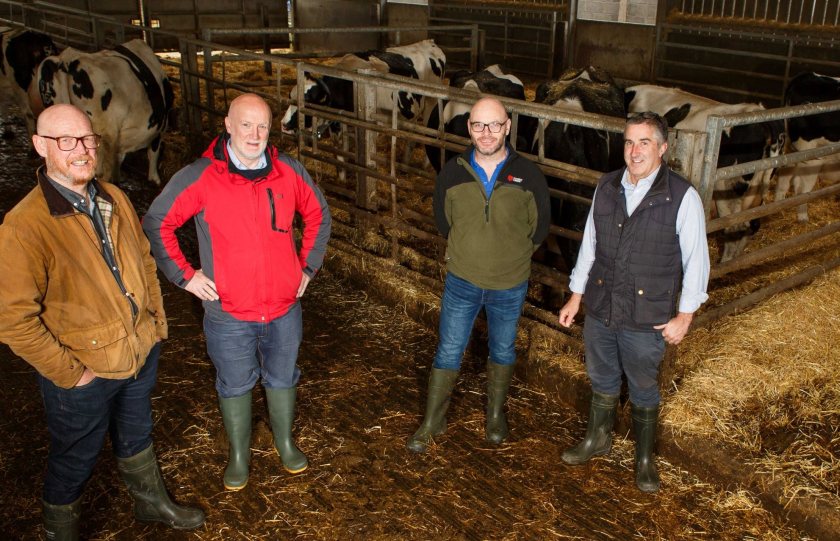
Farmers behind a project aiming to turn cow muck into the carbon capture fertiliser 'of the future' say it could provide a new source of income for many.
A team of researchers and farmers are developing a process to create a carbon storage substance from livestock slurry.
Biochar, a super charcoal, can be made by heating any biomass – usually plant-based – without oxygen, but the team have developed a process to create it from cattle slurry.
It can store carbon for thousands of years and could be worth millions to the agricultural economy, according to the project.
This is because major multi-national companies, such as Microsoft, are paying for carbon offsetting to reach their net zero goals.
The project is being led by consultant John Owen, of Anglesey-based business consultancy firm Lafan, alongside experts at land-based college Coleg Sir G?r in Carmarthenshire.
The efforts have just gained a £50,000 research award for Innovations in the Net Zero Industry from government agency Innovate UK.
The team are currently waiting for the process they have developed to be tested and to produce biochar.
Mr Owen said: “As yet biochar has never been produced from livestock slurry, which is 95% water, but separating the solids and the dewatering processes we have developed have made that possible.
“The residue could be heated at high temperatures, over 400C, to turn it into biochar, pure carbon which can be stored below ground in a carbon capture scheme.
“In this form, biochar stores carbon for thousands of years, but it can also provide a host of agricultural and environmental benefits, such as a soil enhancer and growing medium, an animal feed supplement or as a slurry additive to reduce methane emissions.”
The team are currently waiting in a queue for the use of a processing plant in Welshpool where the first biochar from cattle slurry will be produced.
But they are optimistic and believe their new material has 'massive potential' to benefit rural areas across the UK.
Mr Owen said: “From this month new regulations have come into force prohibiting the spreading of slurry during the designated closed period.
"But if it is instead used to produce biochar there are many more lucrative options."
Microsoft and other big multi-nationals are investing billions in carbon capture and this could provide a new income stream for farmers, Mr Owen added.
"There won’t just be tankers calling to collect milk but also to take slurry to be processed which will provide a new income stream," he said.
“Castell Howell Foods, one of the UK’s leading independent food wholesalers, is supporting us because they are also looking at ways of reducing the carbon footprint of their business in the food supply chain.
“Every business has a target to achieve net zero and those that achieve that first stand to benefit the most."
Businesses are looking to do that through carbon credits and the income from that could be 'massive', he said.
“We believe the process to create biochar will work – we just have to see how the economics of the process stack up."
